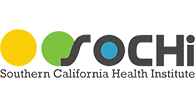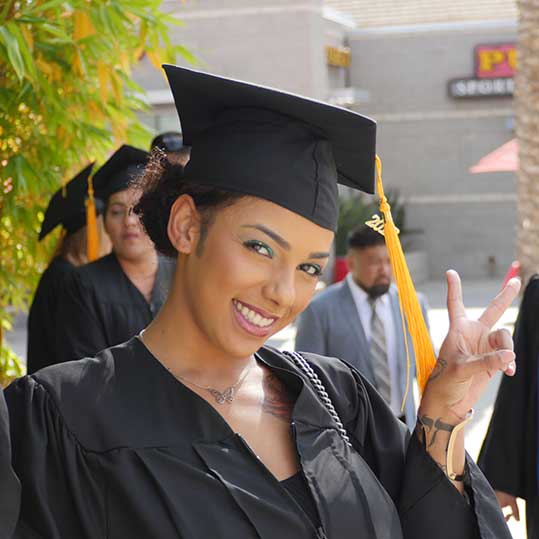In this article, “What Does a Medical Assistant Do?” Learn about the essential roles of a medical assistant and how they support patient care in clinical and administrative settings. Discover why SOCHI is an excellent choice for those planning to become a medical assistant.
Medical assistants are crucial healthcare professionals who work closely with physicians, nurses, and other healthcare providers in serving patients. They are skilled in administrative and clinical tasks that support the efficient operations of healthcare clinics, hospitals, and other healthcare settings. Whether you are a prospective medical assistant or just want to understand more about the role, this article will provide a comprehensive overview of what medical assistants do on a day-to-day basis.
Discover What Does A Medical Assistant Do
Medical Assistant responsibilities lay on a horizontal scale that varies from clinical skills to administrative skills. These skillset areas are taught in the educational process of becoming a certified Medical Assistant.
Top 5 Responsibility of Medical Assistants
1. Clinical responsibilities:
Medical assistants often play a key role in supporting medical procedures and treatments by preparing patients and assisting healthcare providers during the procedures. Clinical responsibilities for medical assistants can include taking vital signs, such as blood pressure and temperature, conducting EKGs, administering medications under the supervision of physicians, and performing basic laboratory testing, such as drawing blood or collecting urine samples.
2. Administrative responsibilities:
Medical assistants also perform various administrative duties that support the operations of healthcare clinics and hospitals. They serve as a point of contact for patients, scheduling appointments, answering phone calls, and managing patient health records. They verify insurance information and ensure billing and coding procedures are correctly executed.
3. Communication skills:
Effective communication is an essential component of a medical assistant’s role. Medical assistants interact with patients throughout their day-to-day work, and they must communicate effectively with them to put them at ease and provide them with the necessary information. They must also be adept in communicating with other healthcare providers, including physicians, nurses, and other medical assistants, working collaboratively to ensure their patients receive the highest quality care.
4. Multitasking:
Medical assistants must be proficient in multitasking to manage their workload efficiently. They must be skilled in juggling both clinical and administrative duties simultaneously. They may be responsible for completing various tasks simultaneously, such as preparing patients for procedures while answering the phone or managing patient records while assisting physicians with clinical procedures.
5. Training and Certification:
Formal training and certification are crucial to becoming a medical assistant. Typically, candidates must have a high school diploma or equivalent to enroll in a medical assisting certificate or diploma program.
These programs usually take a year to complete and provide the necessary training in both clinical and administrative duties. Certifications from professional organizations, like the American Association of Medical Assistants (AAMA), can demonstrate expertise in the field and enhance employment opportunities.
Here are the specific roles delegated to Medical Assistants:
Administrative: Front-Desk And Business Related Work
- Scheduling patients
- Referring patients to specialists
- Greeting patients and having them fill out first-time patient paperwork
- Screening visitors
- Arranging for various patient tests such as x-rays and laboratory testing
- Assisting the physicians in relaying instructions for multiple procedures
- Updating and filing patient records
- Proficiency on a computer
- Facilitating financial arrangements
- Managing the front desk
- Answering the phones
- Handling mail, billing, insurance claims, credit, and collections
- Operating office equipment
- Preparing and maintaining employee records
- Handling petty cash
- Reconciling bank statements
Clinical: Hands-On Care For Patients
- Assisting patients in preparation for physical examinations and procedures
- Obtaining a medical history
- Performing routine clinical and laboratory procedures
- Collecting, preparing, and transporting laboratory specimens
- Performing venipuncture, where permitted
- Assisting the physician with procedures
- Instructing and educating patients on treatments and procedures
- Cleaning and sterilizing equipment
- Obtaining patient’s height, weight, and vital signs
- Preparing and maintaining examination and treatment rooms
- Inventory control-ordering and storing of supplies
- Disposing of hazardous waste and other materials
- Administering medications under the supervision and orders of the physician, where permitted
- Changing bandages and dressings, as well as suture removal, where allowed Handling drug refills as directed by the physician
- Performing electrocardiograms (ECGs)
- Complying with the Occupational Safety and Health Administration (OSHA) guidelines and employee instruction
- Performing skills relevant to a particular practice (for example, audiometry, spirometry, Holter monitor)
- Disposing of contaminated supplies
- Sterilizing medical instruments
- Preparing patients for X-rays
Character Is Important
Since the duties for the field are so thorough, there needs to be a particular type of character for the job. The archetype needs to uphold a specific set of standards and theologies to allow them to execute their duties correctly and efficiently. Characteristics like thoroughness and integrity need to be woven into the training process and actual execution of the scope of tasks. These characteristics are an integral part of the field and enable you to act out your duties successfully. Here are some of the essential qualities required to perform efficiently.
Ethics:
In this field, it is essential to act ethically and erect a set of values placed upon your by-laws and restrictions. This means one must truthfully maneuver their workspaces while loyal to an individual code of ethics. Honesty, cost, and reliability are all keys to being ethical. With ethics, any healthcare institution will continue to thrive due to a lack of proper care from staff or from being shut down by the government for not following strict guidelines.
Conclusion:
Medical assistants are skilled healthcare professionals who serve as the foundation of healthcare settings, greatly contributing to the delivery of efficient and effective healthcare services. They have a wide range of responsibilities that are both clinical and administrative, requiring excellent communication, multitasking, and organizational skills.
Understanding the crucial role that medical assistants play in the healthcare field is vital for both healthcare professionals and patients alike. If you are considering a career as a medical assistant, it is essential to have a good understanding of the responsibilities involved and commit to professional training to develop the necessary skills.




